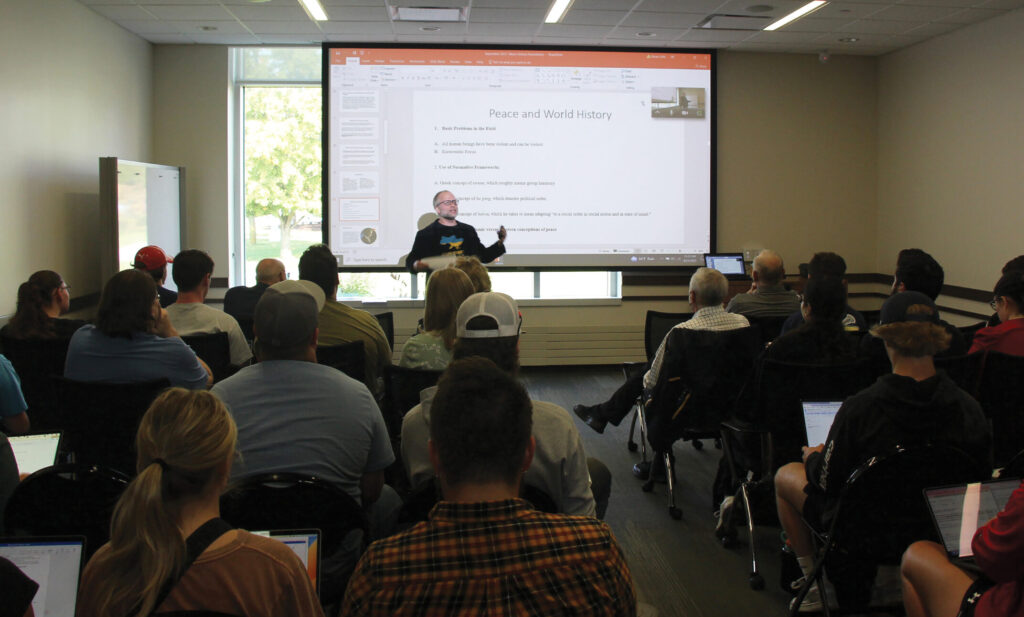A free series called the Humanities Colloquium returned to campus on Thursday, where staff and students were able to attend a presentation about global topics.
The series will discuss different ongoing issues and events happening in the world, with meetings taking place at 11 a.m. on the third Thursday of each month. Each presentation will come from a faculty member on campus.
Dr. Neil Patten, who is the chair of the colloquium and a communications professor, shared his hope for the humanities colloquium series.
“The colloquium has a very rich history here at Ferris State,” Patten said. “At Ferris, the one thing we sometimes don’t realize is just the quality of our faculty and hopefully provides them with a showcase for sharing their research and the research that our faculty does. It’s not only known domestically in academic circles in the United States for exceptionally high academic quality, but internationally.”
Patten also was “delighted to see such a great turnout” for the first presentation of the series this year. There were roughly 30 people in attendance.
Dr. Christian Peterson, a history professor, was the presenter on Thursday. Peterson’s topics came from a book that he had co-written called the “Oxford Handbook of Peace History”. He used this book as a gateway into his presentation.
“I really wanted to have a deeper history of how societies, not just starting with, say, Africa 1900, but how societies going back as far as we can kind of balance these ideas of legitimate civic order and how they viewed violent conflict,” Peterson said. “We wanted to give a broader view of these developments because what historians and social scientists have tended to do is use normative frameworks to explain different approaches to peace.”

The presentation went on to explain the different ways that war and peace relate to different areas. In addition to this, Peterson also went over the different ways of thinking about peace that had occurred from different religious groups and different time periods.
Peterson concluded his presentation with a parting message for the participants.
“At the end of the day, my argument is that what I think is the beauty of history in some ways, is this idea of historical imagination,” Peterson said. “The past is never going to be the past exactly as it was in the past. People say people who don’t know the past are condemned to repeat it. That’s true, but you’re never going to go back to 1939 or 1839 and get a blueprint to navigate today, the problems are different.”
The next presentation will be at 11 a.m. on Oct. 19. Dr. Tracy Busch, who has a Ph.D. in Russian and European history, will be presenting information about the ongoing Russian-Ukranian war. Busch will also discuss how the war has impacted geopolitics.
